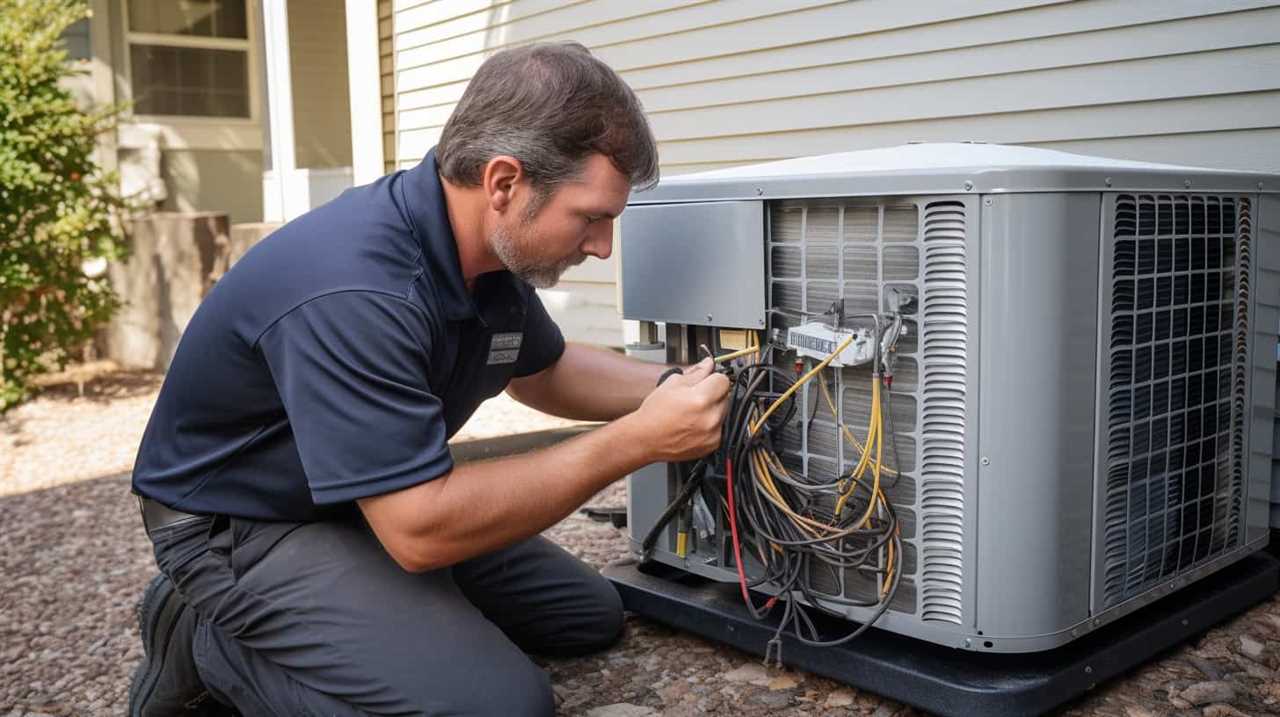Searching for a cost-effective and efficient method to warm up your home? Search no more!
In our updated guide, we present a comprehensive overview of heat pump solutions for homes. We will explore the benefits of switching to a heat pump system, key factors to consider when choosing one, and cost-effective options for different home sizes.
Join us as we dive into the technical details and provide you with the information you need to make an informed decision.
Let’s serve you the best heat pump solution!
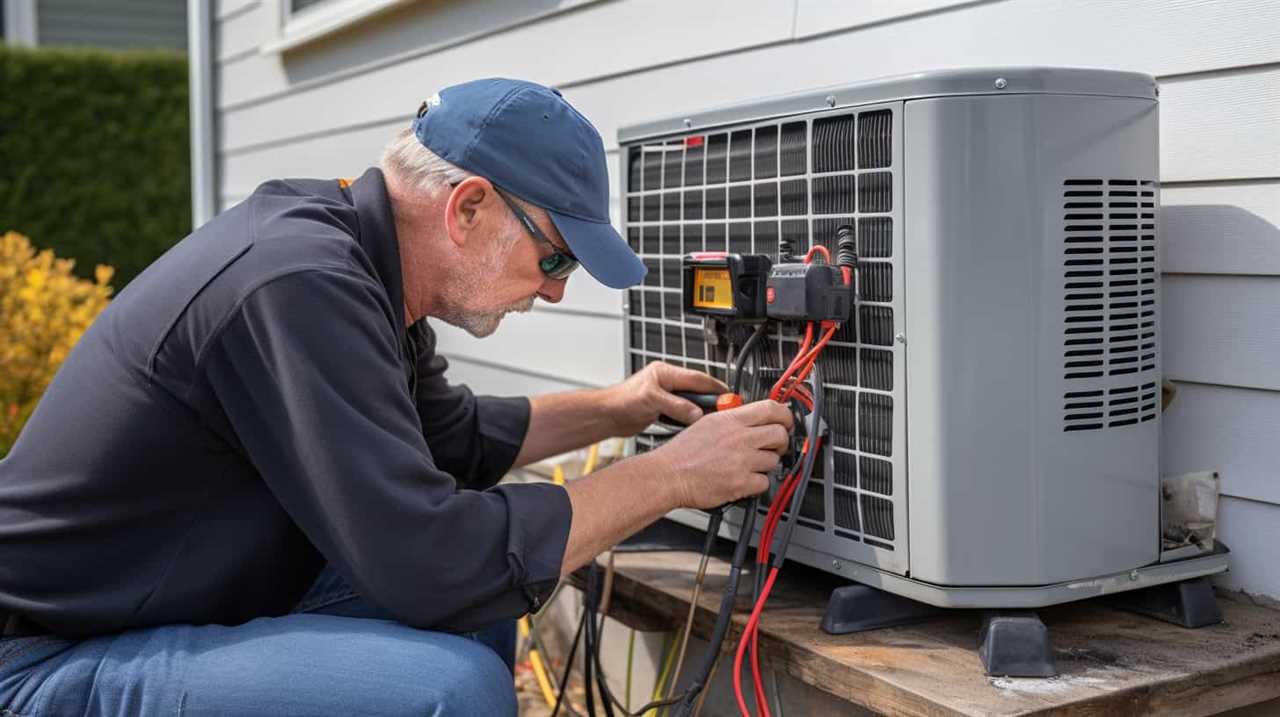
Key Takeaways
- There are three main types of residential heat pumps: air source, ground source, and ductless mini-split.
- Switching to a heat pump system offers benefits such as energy efficiency, cost savings, and environmental friendliness.
- When choosing a heat pump, important factors to consider include energy efficiency ratings (SEER and HSPF), size and capacity, cost, and installation.
- Evaluating energy efficiency ratings involves looking at the SEER, HSPF, and Energy Star certification.
Overview of Residential Heat Pump Options
We’ll now provide an overview of the various heat pump options available for residential use. When considering residential heat pump benefits, it’s important to factor in heat pump installation costs.
There are three main types of heat pumps commonly used in homes: air source heat pumps, ground source heat pumps, and ductless mini-split heat pumps.
Air source heat pumps are the most common and affordable option. They extract heat from the air outside and transfer it indoors to heat your home during the colder months.
Ground source heat pumps, on the other hand, extract heat from the ground through a series of underground pipes. While they’ve higher upfront installation costs, they’re more efficient and can provide substantial energy savings in the long run.
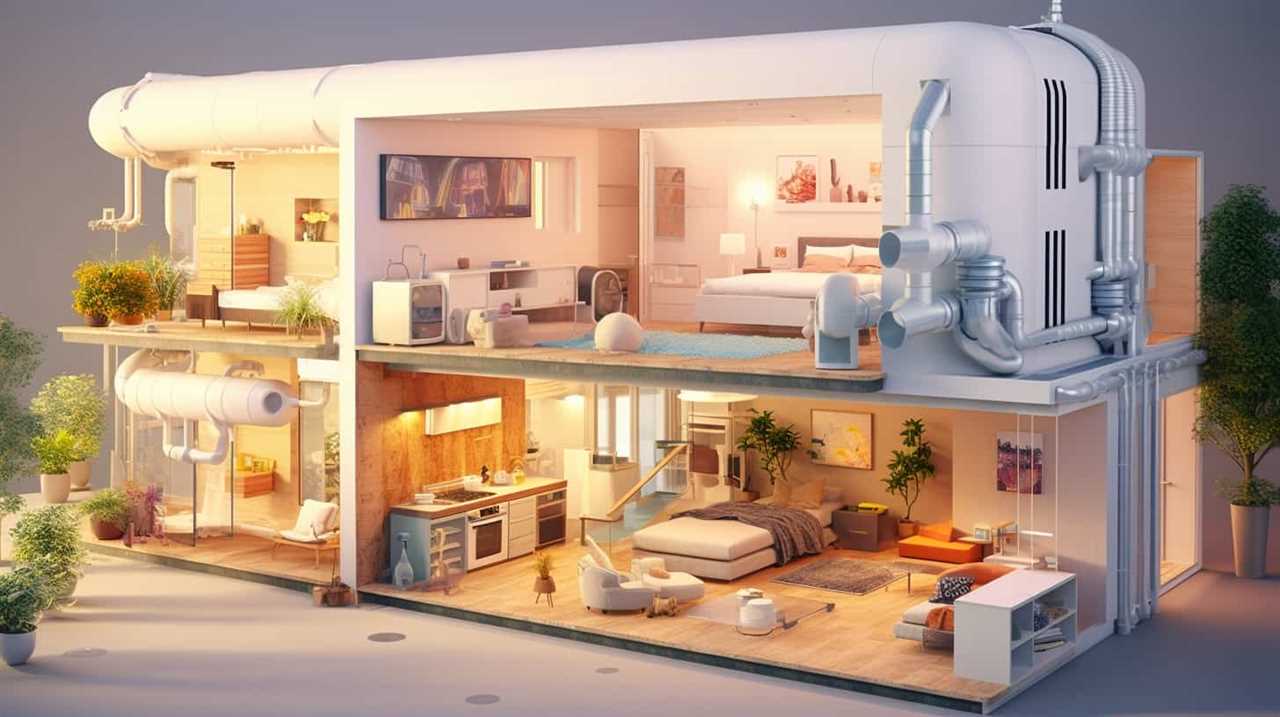
Ductless mini-split heat pumps offer versatility, allowing you to control the temperature in individual rooms. They’re easy to install and provide both heating and cooling capabilities.
Switching to a heat pump system not only provides efficient heating and cooling, but it also offers benefits such as reduced energy consumption, lower utility bills, and a smaller carbon footprint.
Benefits of Switching to a Heat Pump System
By switching to a heat pump system, we can enjoy benefits such as reduced energy consumption, lower utility bills, and a smaller carbon footprint. Heat pumps offer several advantages over traditional heating and cooling systems, making them an excellent choice for homeowners. Here are the key benefits of switching to a heat pump system:
-
Energy Efficiency: Heat pumps are highly efficient, as they transfer heat from one place to another instead of generating it. This results in reduced energy consumption and lower utility bills.
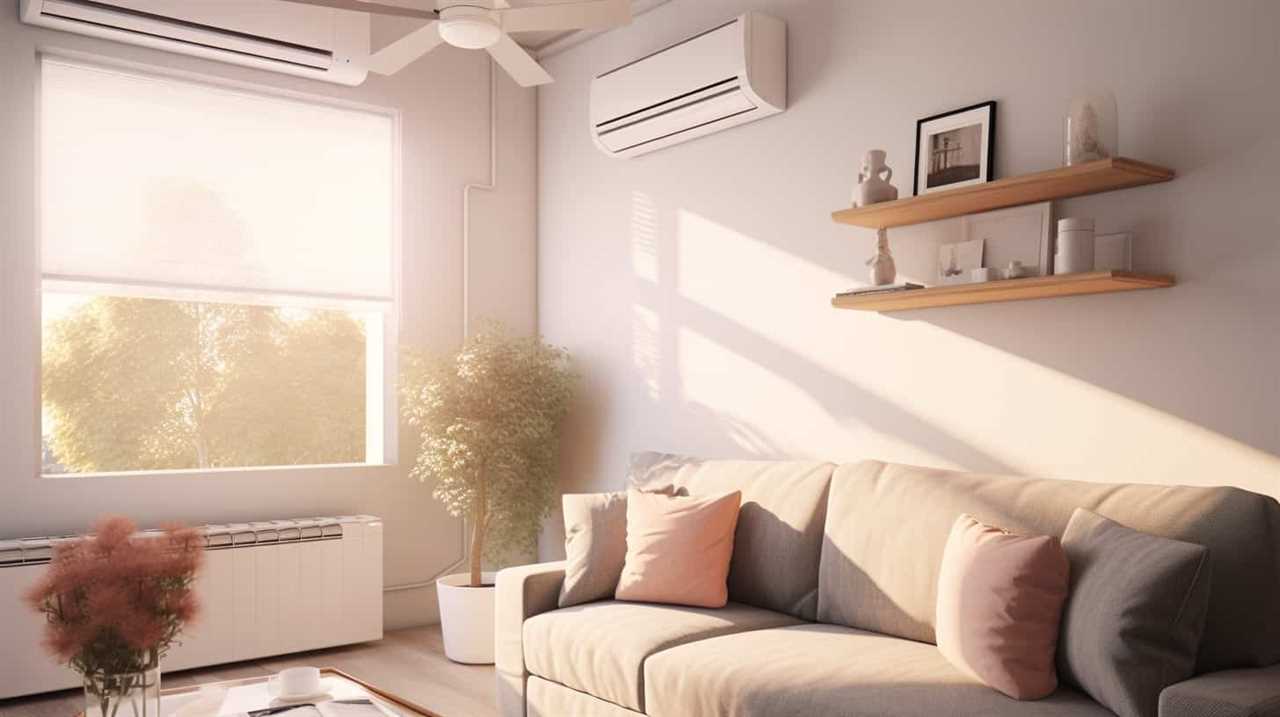
-
Cost Savings: With their high energy efficiency, heat pumps can significantly lower your heating and cooling costs. By harnessing the natural heat from the environment, these systems provide substantial savings potential.
-
Environmental Friendliness: Heat pumps produce fewer greenhouse gas emissions compared to conventional heating systems, resulting in a smaller carbon footprint. By choosing a heat pump system, you’re actively contributing to a more sustainable future.
Switching to a heat pump system offers numerous advantages, including energy efficiency, cost savings, and environmental friendliness. These systems provide an excellent opportunity to reduce your energy consumption, lower utility bills, and make a positive impact on the environment.
Key Factors to Consider When Choosing a Heat Pump for Your Home
When choosing a heat pump for our home, there are several key factors to consider.

Firstly, we need to look at the energy efficiency ratings of different models, as this will impact our overall energy consumption and costs.
Secondly, we should assess the size and capacity of the heat pump, ensuring it’s suitable for the size of our home and our heating needs.
Lastly, we need to take into account the cost of the heat pump itself, as well as the installation process, to ensure it fits within our budget.
Energy Efficiency Ratings
The energy efficiency ratings of a heat pump are an important factor to consider when selecting one for our home. Not only do efficient heat pumps result in significant energy savings, but they also have a positive environmental impact.
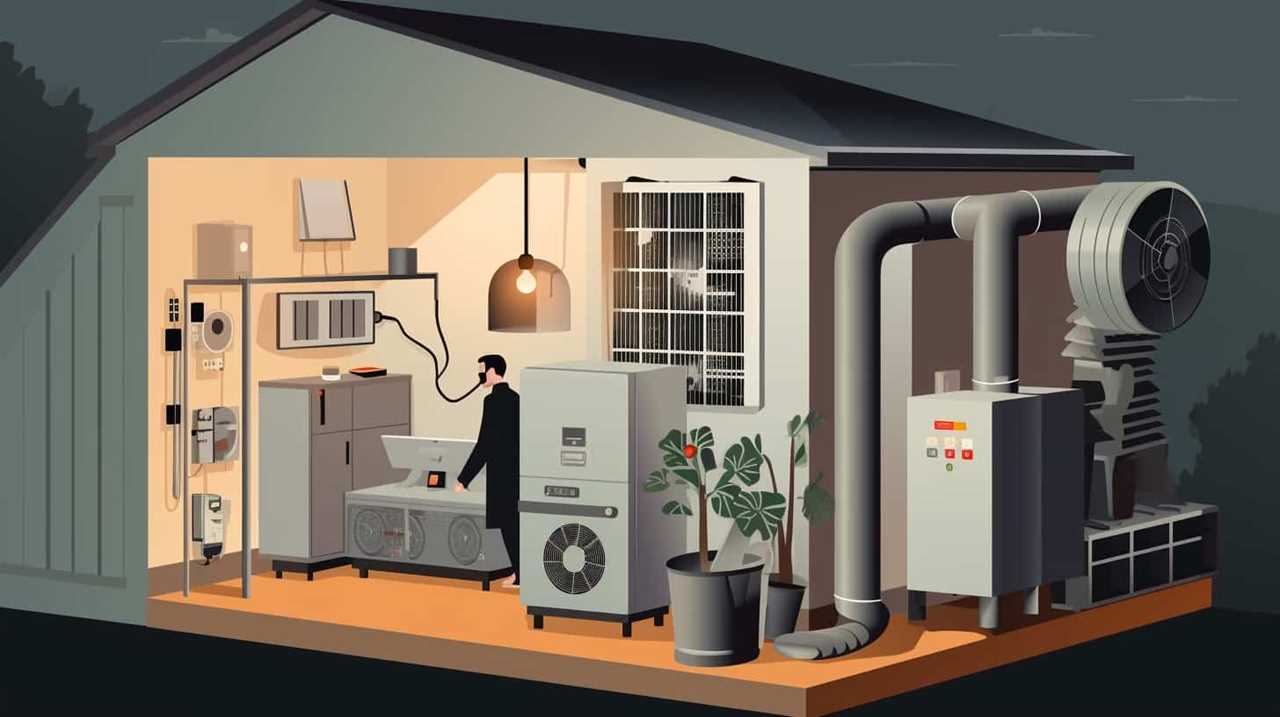
Here are three key factors to consider when evaluating the energy efficiency of a heat pump:
-
Seasonal Energy Efficiency Ratio (SEER): This rating measures the cooling efficiency of the heat pump during the summer months. The higher the SEER rating, the more energy efficient the heat pump is.
-
Heating Seasonal Performance Factor (HSPF): The HSPF rating indicates the heating efficiency of the heat pump during the winter months. Look for a higher HSPF rating for better energy efficiency.
-
Energy Star Certification: Heat pumps with the Energy Star label meet strict energy efficiency guidelines set by the Environmental Protection Agency. Choosing an Energy Star certified heat pump ensures maximum energy savings and reduces environmental impact.

Size and Capacity
One important aspect to consider in choosing a heat pump for our home is the size and capacity, as it plays a crucial role in ensuring optimal heating and cooling performance.
Heat pump sizing is the process of determining the appropriate size and capacity of the heat pump needed to adequately heat or cool a space. When considering capacity, it’s important to take into account the size of the area to be heated or cooled, as well as factors such as insulation levels, windows, and the desired temperature range.
Oversized or undersized heat pumps can lead to inefficiencies and increased energy consumption. It’s recommended to consult with a professional to accurately determine the appropriate size and capacity of the heat pump for your specific needs.
Cost and Installation
We have three key factors to consider when choosing a heat pump for our home: cost, installation, and energy efficiency.

-
Cost: Purchasing and installing a heat pump can be a significant investment. However, the long-term cost savings in energy consumption outweigh the initial expense.
-
Installation: Proper installation is crucial for optimal performance and efficiency. It’s recommended to hire a professional HVAC technician who’s experienced in heat pump installations. They’ll ensure that the system is correctly sized and installed according to manufacturer specifications.
-
Energy Efficiency: Heat pumps are known for their energy-saving capabilities. By using the heat transfer process, they can extract heat from the air or ground and transfer it indoors. This results in lower energy consumption and reduced utility bills.
Considering these factors, it’s important to choose a heat pump that offers cost savings and efficient energy consumption.

In the next section, we’ll explore cost-effective heat pump solutions for different home sizes.
Cost-Effective Heat Pump Solutions for Different Home Sizes
When considering cost-effective heat pump solutions for different home sizes, several factors come into play.
For small homes, it’s crucial to find a heat pump that not only fits the space but also offers low installation and operational costs.
Efficiency is another important consideration, as smaller homes typically have less space to heat or cool, making it essential to find a heat pump that can effectively balance efficiency with size.
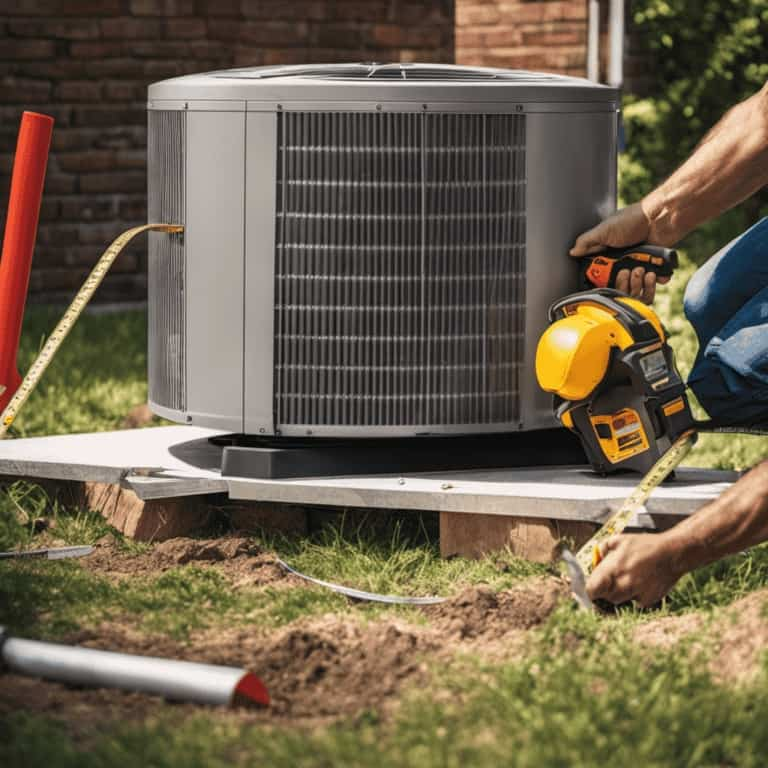
Small Homes, Low Costs
In our updated guide, we’ll explore cost-effective heat pump solutions for small homes, focusing on low-cost options. When it comes to small homes, maximizing space is crucial. Here are some energy-saving tips to consider:
-
Opt for a ductless mini-split heat pump system: These systems are compact and ideal for small spaces. They provide both heating and cooling, saving you the hassle and cost of separate units.
-
Invest in a programmable thermostat: This allows you to set temperature schedules according to your needs, ensuring efficient energy usage and cost savings.
-
Consider insulation improvements: Proper insulation helps retain heat or cool air, reducing the load on your heat pump and lowering energy consumption.

Efficiency Vs. Size
To determine the most cost-effective heat pump solutions for different home sizes, we must consider the balance between efficiency and size.
When it comes to heat pumps, efficiency comparison is crucial as it directly affects the energy consumption and operating costs. A higher efficiency heat pump can significantly reduce your monthly energy bills, making it a wise long-term investment.
However, it’s important to also consider the size of the heat pump in relation to your home. A heat pump that’s too small may struggle to adequately heat or cool your space, leading to inefficient operation and discomfort. Conversely, a heat pump that’s too large for your home may cycle on and off frequently, wasting energy and potentially causing temperature fluctuations.
Therefore, it’s important to carefully consider both efficiency and size when selecting a cost-effective heat pump solution for your home.

Energy Efficiency Ratings and How They Impact Cost Savings
How do energy efficiency ratings affect our potential cost savings?
Energy efficiency ratings play a crucial role in determining the long-term savings we can achieve with our heat pump. Here’s why:
-
Lower energy consumption: Heat pumps with higher energy efficiency ratings consume less electricity, resulting in reduced energy bills and cost savings over time.
-
Environmental impact: Energy-efficient heat pumps help reduce our carbon footprint and contribute to a greener future, promoting sustainability and environmental responsibility.
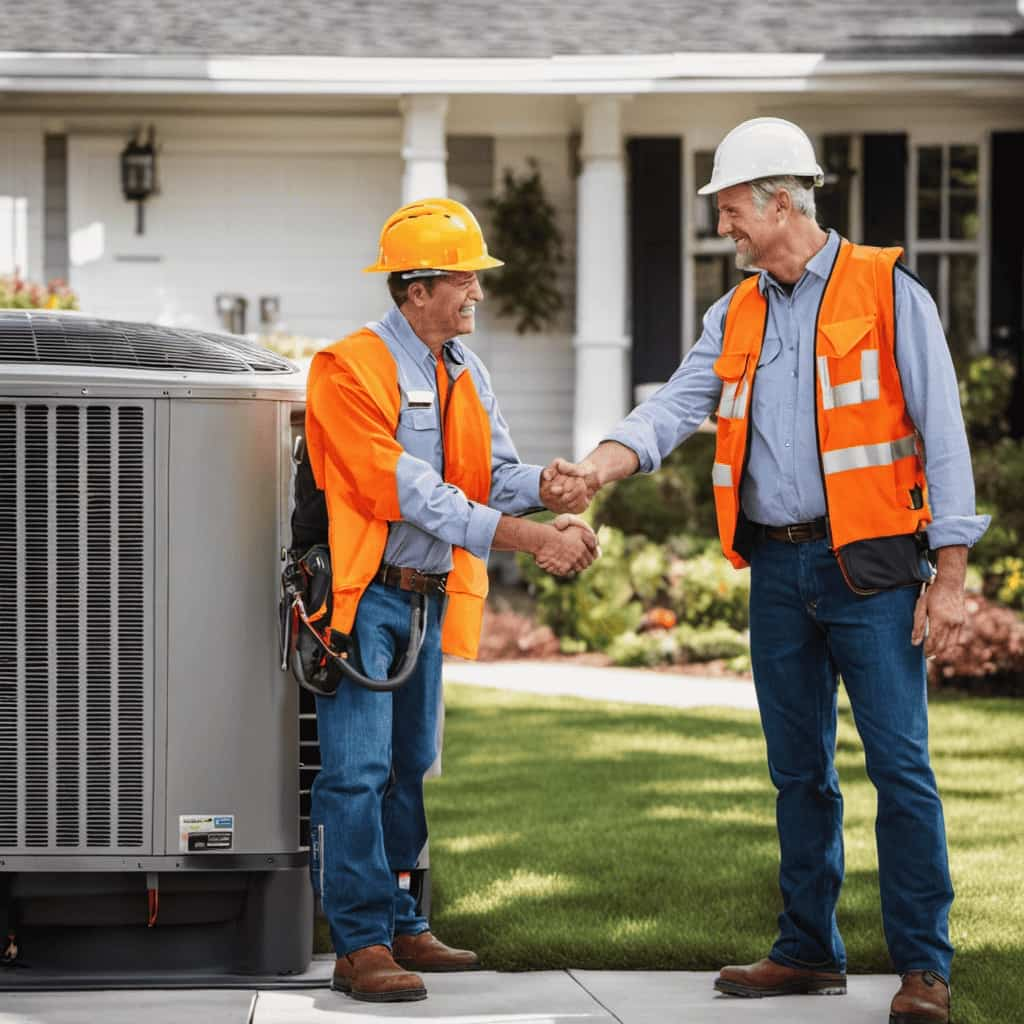
-
Increased comfort: Energy-efficient heat pumps provide consistent and reliable heating and cooling, ensuring a comfortable living environment while saving on energy costs.
Understanding the energy efficiency ratings of heat pumps is essential for making informed decisions that align with our desire to serve others and our commitment to long-term cost savings.
Now, let’s explore the financing options available to make affordable heat pump installation a reality.
Financing Options for Affordable Heat Pump Installation
Our article will now explore the various financing options available for affordable heat pump installation.
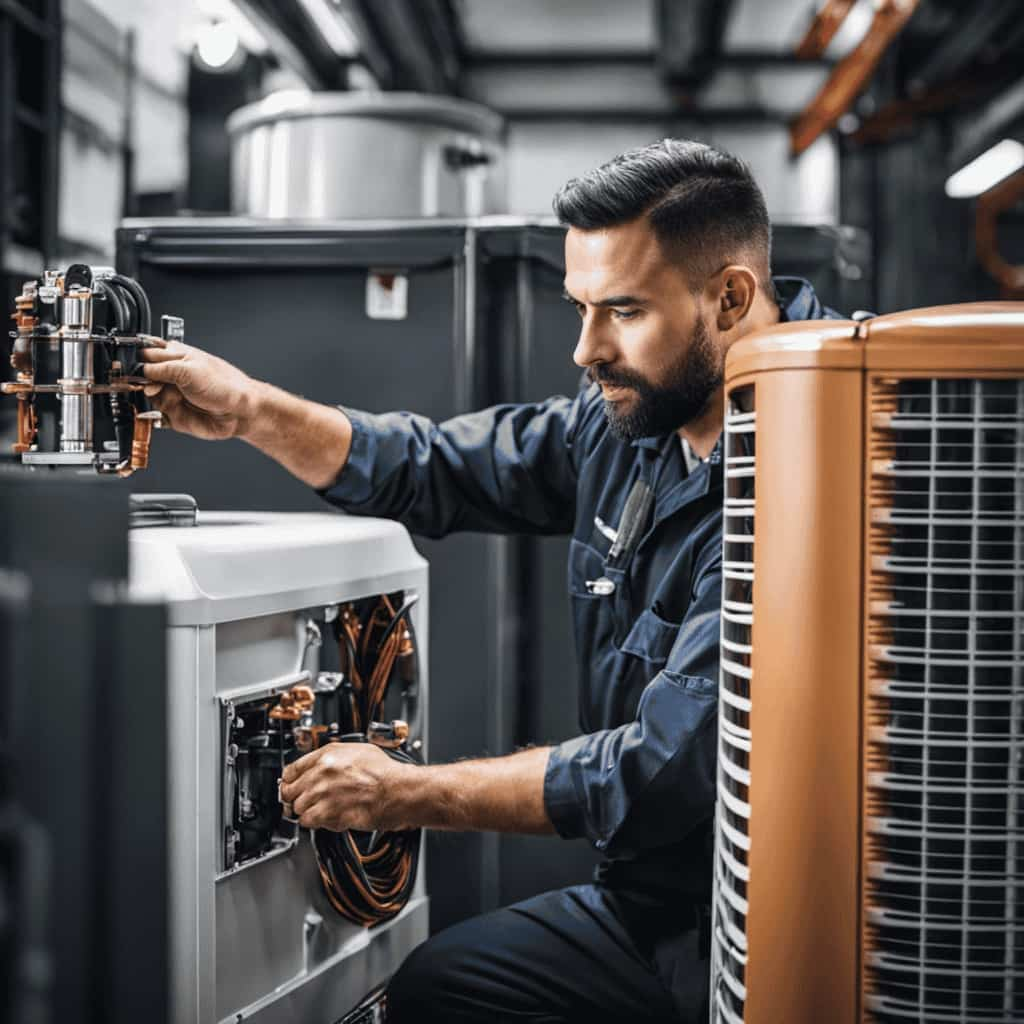
When it comes to financing the installation of a heat pump, there are several options to consider. One option is to apply for a loan specifically designed for energy-efficient home improvements. These loans often come with favorable terms and low interest rates, making them an attractive choice for homeowners.
Another popular financing option is to take advantage of government incentives and rebates. Many governments offer financial incentives to encourage the adoption of energy-efficient technologies, including heat pumps. These incentives can help offset the initial cost of installation and make heat pumps more affordable for homeowners.
Additionally, some utility companies offer financing programs that allow homeowners to finance the cost of their heat pump installation through their monthly utility bills. Exploring these financing options can help homeowners find a solution that fits their budget and allows them to enjoy the benefits of a heat pump.
Frequently Asked Questions
How Often Does a Heat Pump Need to Be Serviced or Maintained?
We recommend scheduling professional heat pump maintenance at least once a year. Regular servicing is crucial to ensure optimal performance, energy efficiency, and longevity of the system. Trust the experts to keep your heat pump running smoothly.
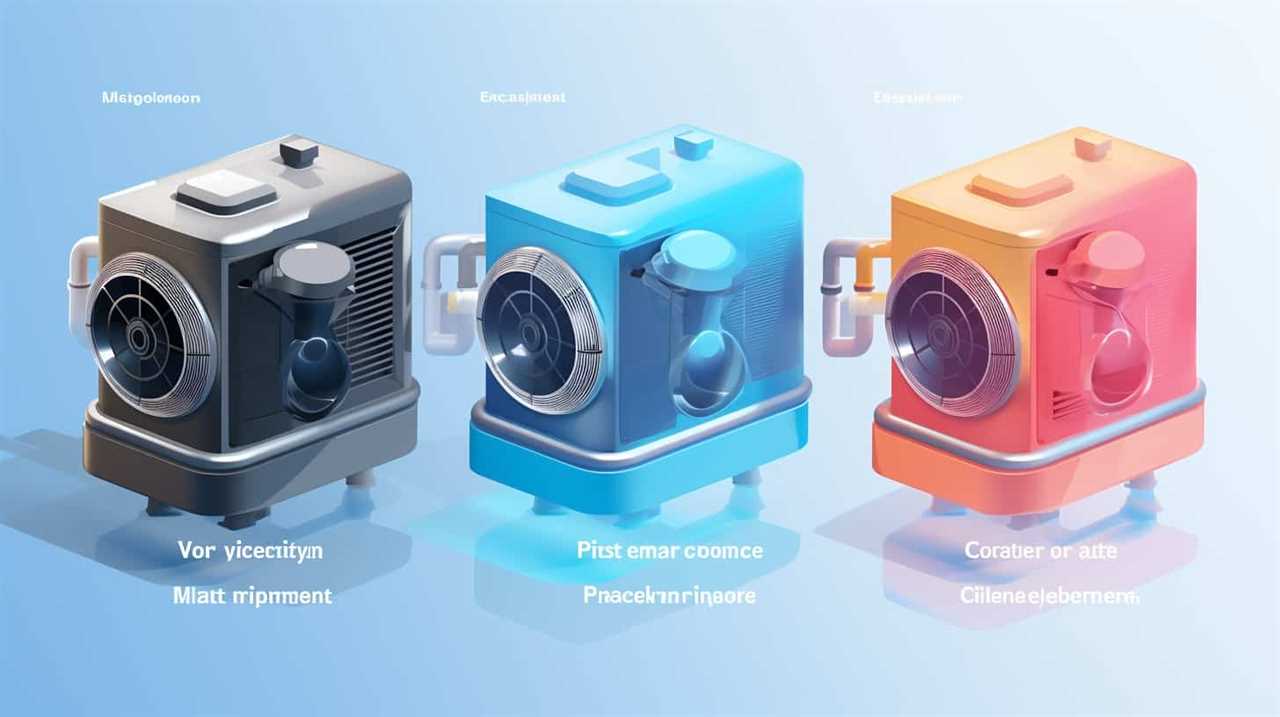
Are Heat Pumps Noisy When They Are Running?
Yes, heat pumps can make some noise while running. However, there are tips for reducing heat pump noise, such as proper placement, regular maintenance, and using soundproofing materials.
Can a Heat Pump Be Used as the Sole Heating and Cooling System for a Home?
Yes, a heat pump can be used as the sole heating and cooling system for a home. Pros include energy efficiency and cost savings, but factors such as climate and insulation should be considered.
Can a Heat Pump Be Installed in Any Type of Home, Regardless of Its Age or Construction?
Yes, a heat pump can be installed in any type of home, regardless of its age or construction. The compatibility of the heat pump and the installation process may vary, but it is feasible in most cases.
Are There Any Government Incentives or Rebates Available for Installing a Heat Pump?
Yes, there are government incentives and rebates available for installing a heat pump. These incentives can help offset the initial heat pump installation costs, making it more affordable for homeowners.
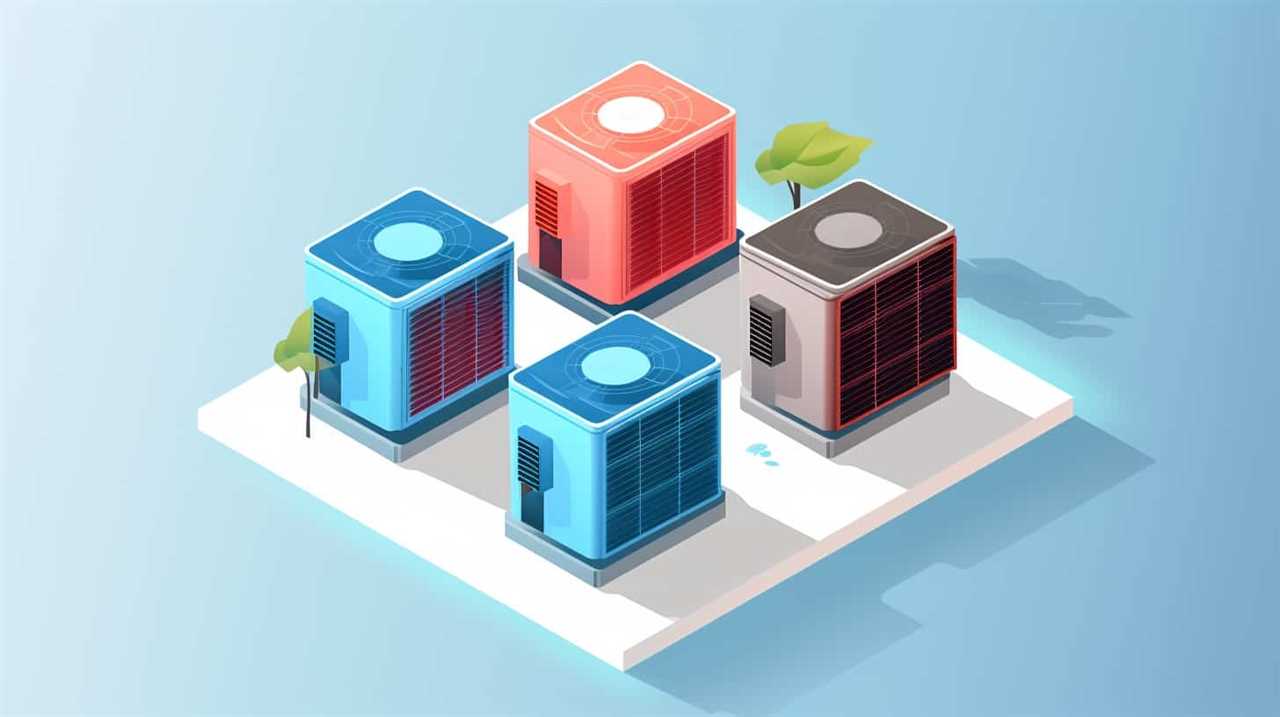
Conclusion
In conclusion, when it comes to affordable heat pump solutions for homes, there are various options to consider.
Switching to a heat pump system not only brings numerous benefits but also helps save on energy costs.
By carefully considering factors such as home size and energy efficiency ratings, homeowners can find cost-effective solutions that suit their needs.
Remember, when it comes to heat pumps, it’s important to strike while the iron is hot and make the right choice for long-term comfort and savings.


